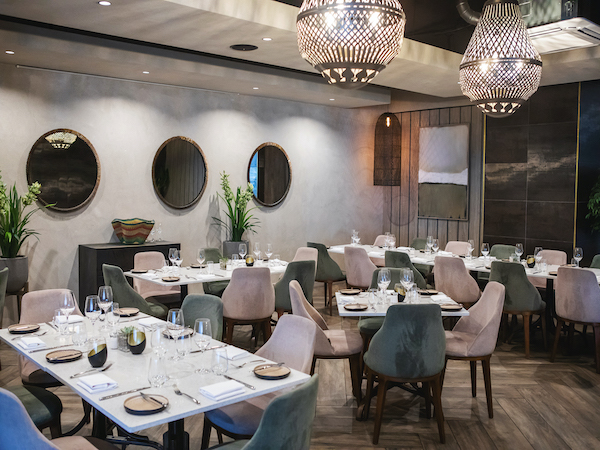News
Crafty distillers
Wednesday, September 15th, 2010
Malu Lambert learns the secrets of making vodka at Wellington’s Jorgensen Distillery.
The not-so-sleepy town of Wellington is sprawled out before my windshield; all dust, dogs and driveways.
It’s the driveway to the right where I’m headed. I’m going to Jorgensen’s Distillery to find out more about Primitiv, which is styled as ‘SA’s first premium vodka’. A swift turn onto rocky gravel, and I’m in another world completely.
A pastoral scene greets me as I enter Versailles farm, complete with tail-wagging dogs, blue mountains as a backdrop, and rows of verdant vineyards.
‘It’s like stepping back in time,’ says Roger Jorgensen, indicating his idyllic property as he shows me where to park.
Jorgensen’s Distillery is home to handcrafted spirits, namely potstill brandy, vodka, absinthe and gin; as well as a veritable menagerie, five kids, and parents Roger and Dawn.
The couple met 10 years ago. ‘We’re a put-together family,’ explains Roger. ‘We were quite lucky that we both had sole custody of our kids, so it was easy to integrate.’ And, family is what their business is all about.
‘Operating on such a small scale makes this business very personal, our entire family is involved. Especially our daughter Lemor.’
Roger leads me through their farmhouse. The walls are covered in contemporary art and there are quirky figurines, masks and unidentifiable objects in every nook and cranny. It’s a big, rambling home. ‘That’s just how we like it,’ Dawn says with a smile.
Outside on the porch, I spot sleepy cats and rambunctious dogs, hardly the image I imagined for a premium vodka brand. Forget the tsars in their snowy kingdoms, swilling caviar and ice-cold white spirit; this is the face of artisan distillers in SA.
‘Indeed,’ says Roger, ‘we’re real people with garages, faces, cats…’
‘The spirit market in general is dominated by big business. In America as few as nine companies hold the majority interest, and in SA it’s even fewer. So why not start an artisan distillation revolution?’
‘This is the beginning of the reaction,’ Roger continues. ‘We’re part of a movement; the backlash to big business.’
Dawn brings out an ice-cold bottle of Primitiv vodka. The bottle itself is beautiful – simple and clean – and was designed by their daughter Jess, who is a graphic designer.
‘Our vodka is made with spelt wheat,’ says Roger as he pours viscous vodka into cold-frosted glasses. ‘It imparts a nutty, malty, and slightly peppery flavour to the spirit.’
Interestingly, spelt wheat is what’s known as a ‘relic crop’, which means that it’s a grain with ancient roots and is rarely cultivated in the modern world. The only place it grows in South Africa is up in the Cederberg, right on the snowline.
‘If you start with an ingredient that isn’t palatable, you’ll end up with no real flavours or aromatics. Big booze factories can make spirits out of anything, even cattle feed,’ Roger explains. ‘They distil it so that it’s pure alcohol without any residual flavours.’ The alternative would be a vodka that whiffs of cattle feed, or some other noxious substance.
‘For a family business operating on such a small scale, we can’t afford to make a poor product. We only get one chance.’
With cold vodka warming our bodies, Roger settles into story-telling mode.
‘I’ve been a distiller for years,’ he begins. ‘In 1994 I made my first vintage of Savingnac potstill brandy. There’s huge commercial difference between white and brown spirits. White spirits aren’t aged like the potstill brandy; I had to wait 12 years to recoup the costs. White spirits are instantly gorgeous.’
‘We spent two years studying techniques until we settled on a formula for Primitiv; we wanted the flavour of the Russians and the mouthfeel of the Polish.’
Appropriately giddy, we set off on a tour of the distillery with Dawn promising us a sushi lunch on our return.
We kick off the tour in the garden and sniff plantations of wormwood and other botanicals with long, Latin names.
‘I’m growing all the aromatics that will go into the spirits,’ says Roger. ‘This one’s for the gin,’ he says, pointing to green shrubbery, ‘and this one’s for the absinthe.’
‘Come, let me show you where I dry and sort the plants,’ he says, striding off in the direction of the distillery.
Inside are rafters hung with dried, green bushels. ‘Nothing illegal,’ Roger laughs. There are bags of spelt wheat and barley, tubs of star anise and liquorice root, and much more piled high on a groaning tables and on the cement floor; a real alchemist’s workshop.
But where are the bubbling tanks of spirits? Roger leads me outside to his ‘alfresco’ distillery.
The set-up is completely charming and I’m immediately jealous of his ‘office’, which is sheltered by an oak tree. There’s a boiler, a mash ton, a potstill and other distilling miscellany.
‘The secret,’ says Roger, nodding towards the still, ‘is marbles.’ Not losing them though. What he means is that there are glass marbles packed into the column of the potstill.
‘The alcoholic vapour condenses on the first lot of marbles,’ he explains, ‘then drops down, only to meet the second wave of steam, condensing it once more. So by the time it reaches the top, it’s been distilled a few hundred times.’
Soon we’re seated back on the ample porch, the cats waking up as the heat of the day lifts.
Fresh, cool sushi is wolfed down aided by sips of frosty Primitiv. The residual flavour of the vodka is peppery and creamy.
‘Vodka needs to have mouthfeel, oiliness, and a creaminess that carries the throat burn. Vodka that just burns your throat isn’t a successful example.’
When asked about his background, Roger smiles and says: ‘I’m an international traveller and hooligan of note.’
And, in my opinion, a master distiller and artisan too.
Words and photography by Malu Lambert








